Rebuilt: Paul Basagoitia on Recovery From His Rampage Crash & The Ongoing Process
Over the last several months, one question has continued to pop up for me: After an injury derails someone's life, what happens next?
Recently, I decided to talk to people have gone through the recovery process. I'm starting a hopefully semi-regular interview series called Rebuilt, in which I'll catch up with people who have experienced the worst of it and come out the other side. I recently had the chance to chat with Paul Basagoitia, who was paralyzed from the waist down after a scary crash at Red Bull Rampage in 2015. Paul is clearly a hard worker who has continued to push through his recovery. In fact, he was told he wouldn't improve at all after the first two years, but he's continued to work on his recovery and keeps seeing progress. It makes sense. He used to defy odds back pre-injury when he threw flips on his bike, and he's been defying odds again by continuing to heal, doing the things he was told he'd never do, and pedaling a bike again. I caught up with him to learn about that process.
Part of my interest is that I'm recovering from my own head injury - find the latest update here if you'd like to learn more about that. That means that I take maybe a bit of extra motivation and inspiration from Paul's story. That said, I think all of us, no matter what we've been through, can learn from Paul's way of seeing all the possibilities ahead.
 Could you start by just letting me know what happened, just walk me through how the crash went from your perspective?
Could you start by just letting me know what happened, just walk me through how the crash went from your perspective?
Yeah. In 2015 I was competing at the Red Bull Rampage and made one little mistake, flipped over the handlebars, landed on my back and I ended up burst-fracturing my T12 vertebra, which compressed my spinal cord, which left me paralyzed from the waist down.
 Wild. Do you remember how it felt as you were crashing?
Wild. Do you remember how it felt as you were crashing?
Right when I hit the ground, I knew something was up. I've taken many crashes throughout my career, and when I hit the ground that time, I knew it was different, just because I couldn't move anything from my waist down. Right then I knew that this was going to be different than the rest of the crashes, and I knew the recovery with this was going to be a lifetime.
What's your situation? You said you’re going through some stuff right now as well. You have an injury?
 My situation is a head injury, a bad TBI. It's both similar and different in that I mostly can't really bike anymore, and so it's changed how I approach pretty much everything. But then also there's been no physical anything really, and pretty much no pain. So, I only sort of know what it's like to feel physically injured, I think. But yeah, it's been just over a year now, so I'm in the medium phase of starting to work again part-time and trying to figure out what life looks like, what my baseline’s going to be going forward.
My situation is a head injury, a bad TBI. It's both similar and different in that I mostly can't really bike anymore, and so it's changed how I approach pretty much everything. But then also there's been no physical anything really, and pretty much no pain. So, I only sort of know what it's like to feel physically injured, I think. But yeah, it's been just over a year now, so I'm in the medium phase of starting to work again part-time and trying to figure out what life looks like, what my baseline’s going to be going forward.
Mountain bike accident?
 Yeah, mountain bike accident. I was at, do you know Hannah Bergemann's Hangtime event?
Yeah, mountain bike accident. I was at, do you know Hannah Bergemann's Hangtime event?
Yes, is that in Bellingham?
 Yeah, it's in Bellingham, where Hannah has a bunch of riders come hit jumps. So, I was doing that and it was really exciting for the first day, just riding jumps with everyone. Then yeah, I guess I crashed and hit my head, and I don't fully even really know what happened. I guess I overshot a jump and somehow ended up with a TBI.
Yeah, it's in Bellingham, where Hannah has a bunch of riders come hit jumps. So, I was doing that and it was really exciting for the first day, just riding jumps with everyone. Then yeah, I guess I crashed and hit my head, and I don't fully even really know what happened. I guess I overshot a jump and somehow ended up with a TBI.
You sound very well, good for having a TBI, so that's awesome. I spent three months at Craig Hospital in Colorado.
 Oh, I was at Craig too!
Oh, I was at Craig too!
Okay. The third floor is TBI patients, and I would go up there and that's a different world. You can write all this down as well. I think this freestyling type of chat is really good – I’m more of a conversation person than an interview guy anyway.
 I love it.
I love it.
Okay, so you know all about that then, and that Craig Hospital is the number one place for TBIs and spinal cord injuries. That's where I did my rehab, and I remember one day I went to the TBI floor to go to lunch, because the lunch line was too long in my floor, so I went upstairs and I spent a few hours with some of the TBI patients. Wow, that's a scary injury, and I tell this to everybody. I said two things you never want to mess up in the human body, is the brain and the spinal cord, because those are the two things that really don't ever heal completely with the body.
 Definitely.
Definitely.
But I don't know how you're walking or your gait, but the way you're speaking, and you're on point, which sounds like your recovery went really well. I don't know if you had any paralysis or any slurring with the words, but you sound very well for going through a TBI.
 Thank you. Yeah, I think I feel both really lucky and unlucky at the same time where it's like I don't want to be in this situation, but recovery's gone about as well as I could hope, and I feel like I got really good care. You don't want to end up at Craig, ever, but then also if you need to, you really do want to be there.
Thank you. Yeah, I think I feel both really lucky and unlucky at the same time where it's like I don't want to be in this situation, but recovery's gone about as well as I could hope, and I feel like I got really good care. You don't want to end up at Craig, ever, but then also if you need to, you really do want to be there.
Have you seen the movie 'Crash Reel'?
 No, but actually it's on my list to watch soon.
No, but actually it's on my list to watch soon.
You have to watch it, it's a great documentary about TBIs from Kevin Pearce, and that's actually what inspired me to start the documentary, 'Any One of Us'.
 Wow, that's awesome.
Wow, that's awesome.
I've never met Kevin. We have mutual friends, we're friends on Instagram, but we never crossed paths yet, but you should definitely watch that film, because it's a powerful film. I mean, it inspired me to do what he did in the TBI world with the spinal cord injury world.
 Yeah, that's so cool. Okay, I'm going to watch it really soon now.
Yeah, that's so cool. Okay, I'm going to watch it really soon now.
All right, so you know the space, you went through Craig, you went and did this firsthand, so it's a scary journey when there's not a magic pill to find this cure, right?
 Exactly, yeah. I think that's why I'm doing this project, where I'm going back to work, but nothing feels the same as it used to in the bike world. So, I'm trying to figure out the stories I can really connect to. So, it's so motivating and inspiring and just cool to get to talk with people like you who have gone through such severe injuries, and hear how they continued on with their lives.
Exactly, yeah. I think that's why I'm doing this project, where I'm going back to work, but nothing feels the same as it used to in the bike world. So, I'm trying to figure out the stories I can really connect to. So, it's so motivating and inspiring and just cool to get to talk with people like you who have gone through such severe injuries, and hear how they continued on with their lives.
Yeah, and you will. You say it's different and you're looking for your outlook and stuff, it took me a while to figure it out as well. I was always competing at a high level in the sport from Slopestyle to Rampage, doing all that to... not moving my legs, and then being able to finally get movement back. But then it was like, "Okay, well this is not the same. I'm never going to compete at a Rampage again, I'm not going to do Slopestyle again, I'm never going to do a backflip again. What's my purpose in this sport now?" Somebody above was like, "Hey, I'm going to create this technology called e-bikes and we're going to give you another chapter in this sport and give you enjoyment to go out and still do it, just do it a different way, but it's going to fulfill your needs to be happy."
 Yeah, that's amazing. How does it feel now riding your bike compared to how it used to feel?
Yeah, that's amazing. How does it feel now riding your bike compared to how it used to feel?
I enjoy riding the bike now more than ever. Am I the same athlete as I was prior to the injury? Absolutely not, and I'm okay with it. Now, every time I throw a leg over the crossbar of the bike, I know it's a blessing and I know that that was never supposed to happen again, right?
So, when I do get on a bike now, I appreciate it so much. There's not a day that I'm on the bike without a smile, and I definitely don't take it for granted. It's different, but at the same time, I'm so blessed to be able to go out and ride. I have a buddy that's going to come here in an hour and we're going to go ride the Santa Monica mountains with the ocean backdrop. It's just like, it fulfills my happiness to still do it, and I don't need to go and compete and ride at the highest level, as long as I'm out there with the friends and being able to do it, I'm okay. That's all I need.
 Yeah, that's awesome. I feel like, I don't know if this is the same as your experience, but getting back into riding a little bit after being injured forces me to be a little more straightforward about what I want to get out of the sport. I used to, I think, believe that I was in it for the friends and the moments laughing and riding down a trail, and now I'm forced to actually step back and be like, "Whoa, now it's reduced to actually just those things," and I really can't be motivated by hitting a bigger jump or things that I used to care about. I don't know, now it's really reduced to the things that I think are best in the sport.
Yeah, that's awesome. I feel like, I don't know if this is the same as your experience, but getting back into riding a little bit after being injured forces me to be a little more straightforward about what I want to get out of the sport. I used to, I think, believe that I was in it for the friends and the moments laughing and riding down a trail, and now I'm forced to actually step back and be like, "Whoa, now it's reduced to actually just those things," and I really can't be motivated by hitting a bigger jump or things that I used to care about. I don't know, now it's really reduced to the things that I think are best in the sport.
Yeah. You'll find a way through this chapter and it'll fulfill your needs and your happiness just as it was when you were doing those big jumps on that bike. It's going to be different, but you'll find your path and your direction, and you'll be at home.
 I'm looking forward to that. Yeah, the bike world's been pretty awesome so far, so I'm hoping to just figure out how to keep finding a place in it.
I'm looking forward to that. Yeah, the bike world's been pretty awesome so far, so I'm hoping to just figure out how to keep finding a place in it.
Yeah, and you will.
 Yeah, I hope so. How did it feel to get back on the bike for the first time? Was that a memorable thing?
Yeah, I hope so. How did it feel to get back on the bike for the first time? Was that a memorable thing?
The first time I was able to pedal a bike, I had a lot of mixed emotions going on. I was super happy, of course, but also I was also like, "Oh, this is going to be different." I knew I was going to ride a bike different. The day I pedaled a bike, I was like, "Oh, I'm never going to be the same Paul Bas that I was,” but just because I couldn't feel the pedals, I was slipping, and I just knew that there was going to be a lot of work to get back to riding a bike in, I would say, in an average way. The first time I pedaled a bike, it was a non e-bike, and I had a lot of challenges with climbing up a hill or anything with a grade. I would literally just ride down the street back and forth, and that was my riding.
Even though, like I said, I'm blessed with what I was able to do, I just knew it was going to be different. I had a lot different emotions with it. I was happy, I was sad. I was like, "This is weird. My feet are not even, they're off the pedals, but they feel like they're on the pedals." It was a lot to learn. It was very confusing. But I think it's weird because when I think about those days, and even though I was stoked to pedal a bike, it was more like, "Oh, this is never going to be the same. Riding a bike on the street, I don't want to stick to just riding down the street back and forth. This is the new form of mountain biking for me.” It's hard to adjust when you've done this for your whole life at a very high level, and now you're limited to just riding down the street, back and forth.
I had to take a moment and say, "I am very blessed that I was able to even recover that far." But you always want more. No matter what, as people, we always want more, no matter what the situation is. I think once I got the e-bike, then that's when I realized, that's where I need to be in mountain biking, and that's what brought the most joy. Because then it opened up the tables for me to go and ride all the trails with my buddies and have the freedom to go and explore the zones that made me happy before my injury.
 That's sweet. I feel like that’s where e-bikes really make a lot of sense, to open up new possibilities and increase everything you can access.
That's sweet. I feel like that’s where e-bikes really make a lot of sense, to open up new possibilities and increase everything you can access.
Exactly, and ever since, I've never been on a regular mountain bike. I've been on an e-bike ever since that day.
 How do you feel like your injury changed you as a person?
How do you feel like your injury changed you as a person?
It humbled me. It humbled me in so many ways. I don't take things for granted as I used to. I appreciate a lot more in life. It changed me. It definitely changed me all around in every perspective as a human being.
 I bet. That's seriously a lot to work through.
I bet. That's seriously a lot to work through.
But it also made me stronger. It humbled me, but it also made me stronger. I'm basically numb to pain now. When you lose the ability to use half your body, nothing really phases you too much in life. The little shit that you thought mattered, doesn't matter.
There's not too many things that make me upset or that I dwell on. Prior to this injury, I used to get a little upset about things that I thought mattered in life, and then when you get your health taken away from you, then it gives you a whole new perspective on what really matters.
 I think that makes a lot of sense. What's your best advice for someone else working through a similar life-changing injury?
I think that makes a lot of sense. What's your best advice for someone else working through a similar life-changing injury?
I mean, you have control of how you want to go on this journey. You can go two ways with it, you can be sad, you can stay inside and sit on the couch, wait for that magic pill to come for your cure, whatever it is. You can dwell on it or you can go, "Hey, you know what? I'm still breathing. Let's maybe try to get better, let's focus on being happy. Let's go outside. I'm still able to do a lot of the things that I used to do. It just might take a little bit longer, it might need an extra set of tools to make it happen or something.” But you can still live a happy life with an injury like a spinal cord injury or a TBI. Life is still good, and you're not alone, and there's so many great foundations that are involved with people with life-altering injuries that do rad things that you can be a part of. I'm a part of them, I'm a part of a lot of these foundations, and it fulfills me as a person to surround myself with these individuals. There's other people in your situation, so never feel that you're alone.
Are you familiar with the High Fives Foundation or anything? There are so many cool foundations that are supporting injured athletes, and I never feel alone, because there's so much going on in the adaptive community. It's cool to be a part of it. I was just at Northstar a couple of weeks ago teaching adaptive mountain bike camps. We had 20 athletes there, and it was so cool to getting these people back on bikes, riding, having a good time, and it's a cool community. I always tell people you're not alone, and if you ever want to get connected in these activities, you let me know, I'll connect the dots.
 That's amazing. Yeah, that sounds so cool too, to move through the whole progression from probably being someone who needed a lot of support from these communities to now leading programs and teaching mountain biking to people. That sounds awesome.
That's amazing. Yeah, that sounds so cool too, to move through the whole progression from probably being someone who needed a lot of support from these communities to now leading programs and teaching mountain biking to people. That sounds awesome.
It's fun. It's great, and I'm stoked that there are these foundations that are putting the energy and time to do this, because it's important.
 Definitely, it changes lives. Well, I think that's everything I'm hoping to cover, but is there anything else you'd like to add?
Definitely, it changes lives. Well, I think that's everything I'm hoping to cover, but is there anything else you'd like to add?
Let's see... I think I'm good. But how are you doing? I mean, you're one year deep into it. Where are you at with it, with recovering, finding your niche?
 I think I’m mostly trying to figure out a lot of that right now.
I think I’m mostly trying to figure out a lot of that right now.
Are you still doing recovery? Are you trying to still get better? Where are you at mentally to get stronger?
 It’s kind of a big mix, really. I go in waves of getting really burned out on just how much I have to put into it, and then getting more energy for it again... I was in hospitals for the first two months and then spent another two months in intensive outpatient rehab, and now I still go to appointments most days. I used to organize my life around biking, now it's just a lot of appointments. I think I'm just tired of the doctor's office process. But I’m still really working on getting better and doing all the rehab I can.
It’s kind of a big mix, really. I go in waves of getting really burned out on just how much I have to put into it, and then getting more energy for it again... I was in hospitals for the first two months and then spent another two months in intensive outpatient rehab, and now I still go to appointments most days. I used to organize my life around biking, now it's just a lot of appointments. I think I'm just tired of the doctor's office process. But I’m still really working on getting better and doing all the rehab I can.
The reason I ask, is because it is very easy to not be motivated after the first-year mark. And then you never really grow or get stronger or whatever the situation is. With my situation, it was like the doctor said, "Hey, after two years, that's it. That is what you're going to get. You're not going to get stronger. You're not going to get any more movement or any more muscle groups firing back up." Well, I'm eight years into it, and I never stopped doing rehab. I go to the gym every single day, an hour-plus, a cold plunge. I am in better shape now than I was before my injury, just because of what happened. I just made it a lifestyle, and I would say year six was when I felt like I had the biggest breakthrough.
Now I'm eight years deep, and when you're on this journey, you have to do it by yourself. It's a lonely journey. You are in control of it. You decide what you want to do with it, and you just got to make sure that you have the drive and motivation to do it. I could have easily stopped after two years when the doctor said, "Hey, nothing's going to happen after two years." I'm so glad I didn't listen to that, because like I said, after year six, I felt like I got a lot stronger, and I'm eight years in now, and I'm still trying to get better. I just went and got stem cells two weeks ago, and I got more three months ago. I'm always trying to progress, and I think that's very important with these injuries. Don't ever put a timeline on it. Don't ever listen when they tell you a timeline. This is your journey and you decide where you want to go with it. I'm going to end it there.
Paul, thanks again for taking the time to talk and being so open about what happens behind the scenes. I hope everyone reading learned something from Paul - I know I did. Follow along on Instagram at @paulbasmtb, and look for him getting rad on the trails near you. He'll be the guy ripping with a big smile.
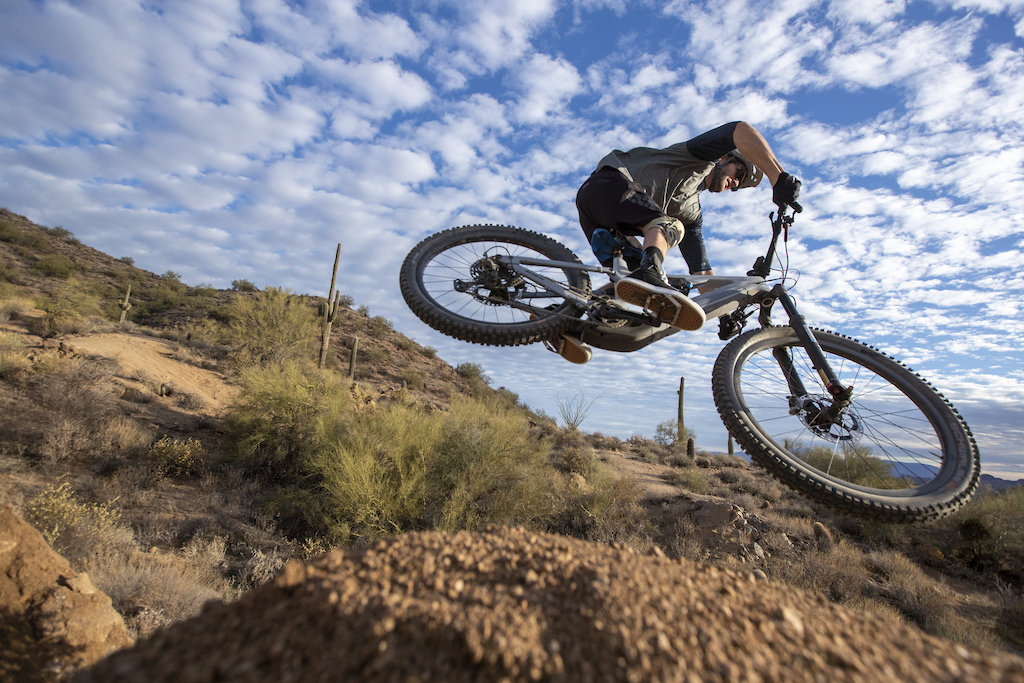
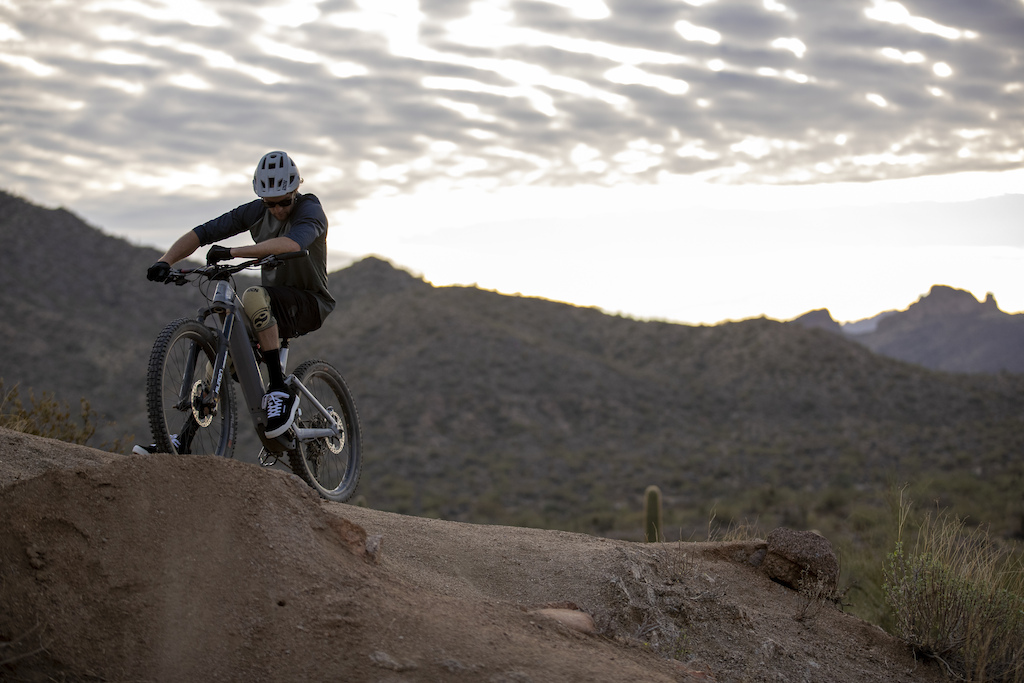

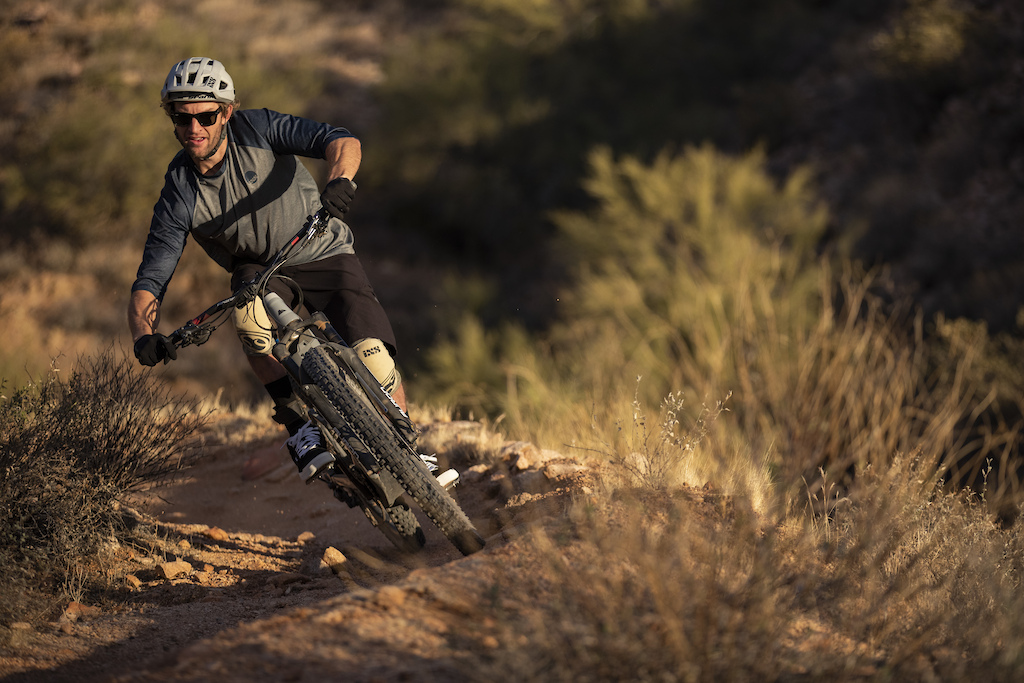
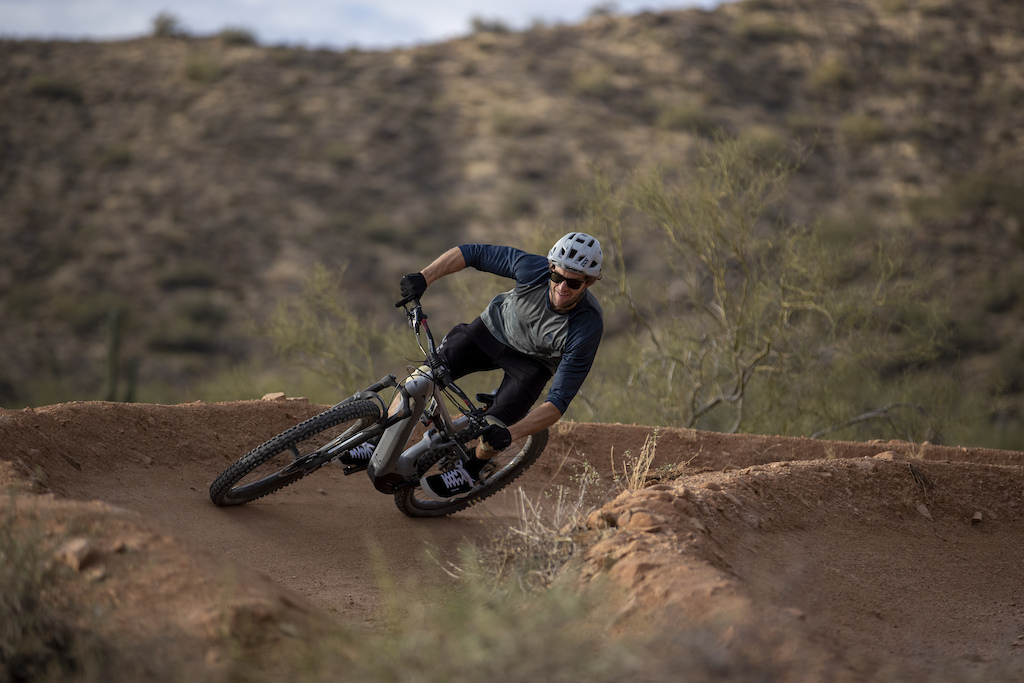
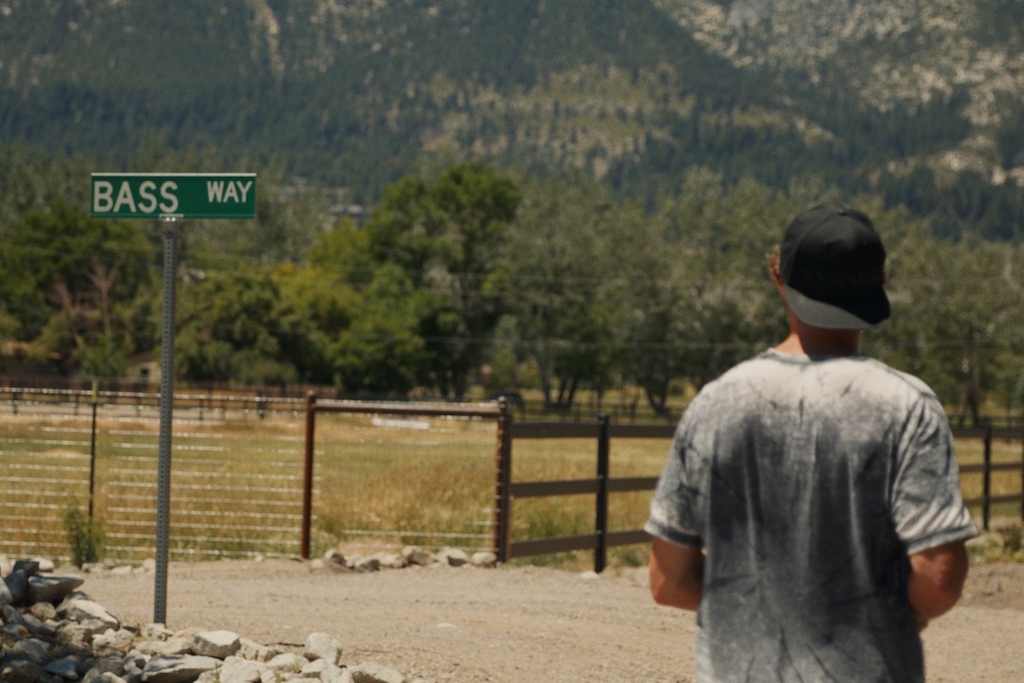
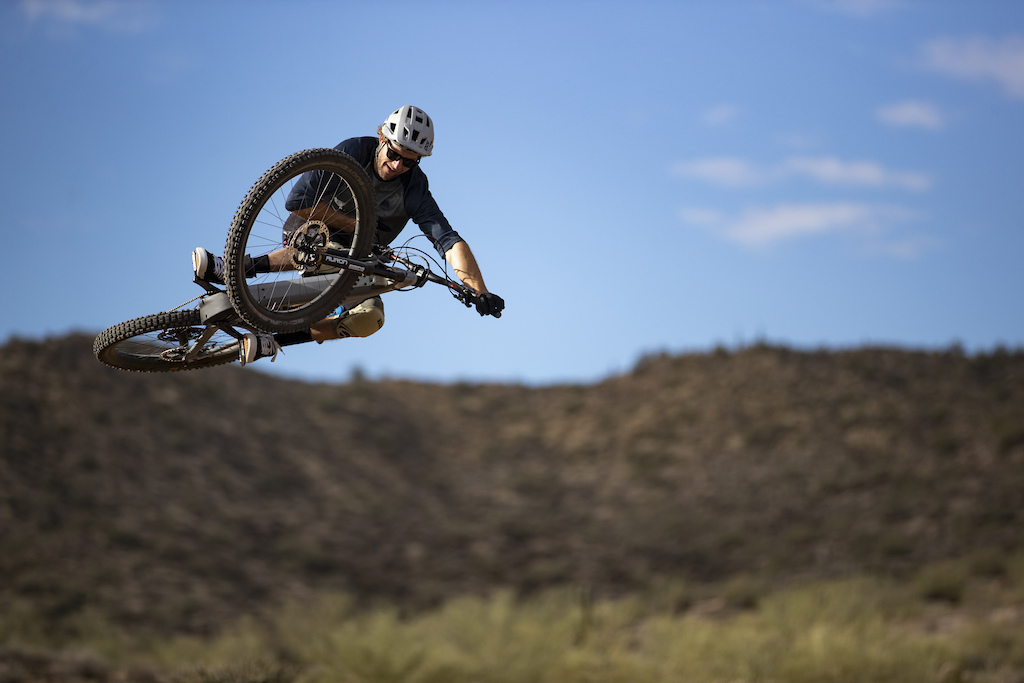
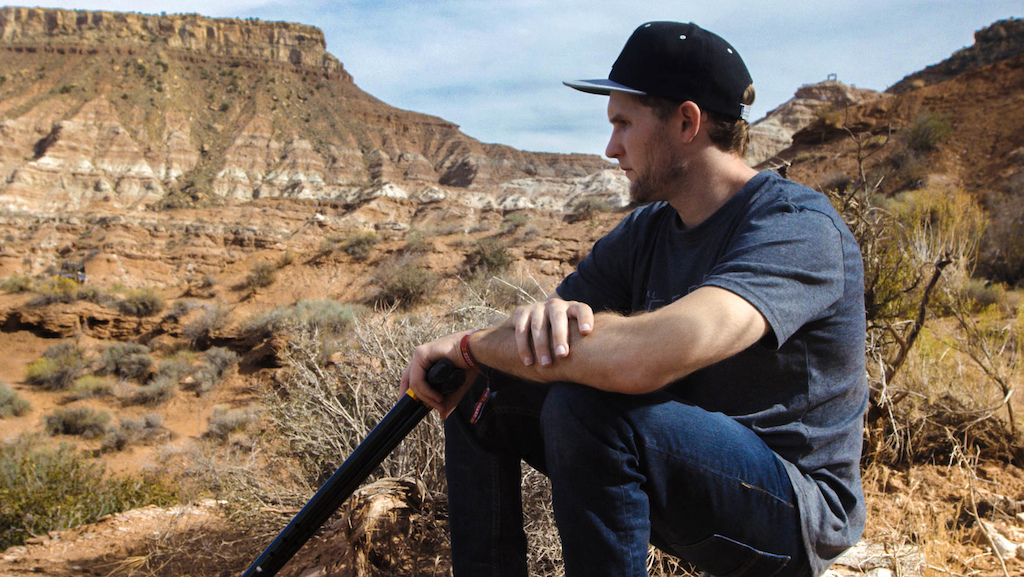

great article alicia!
www.redbull.com/gb-en/films/accomplice